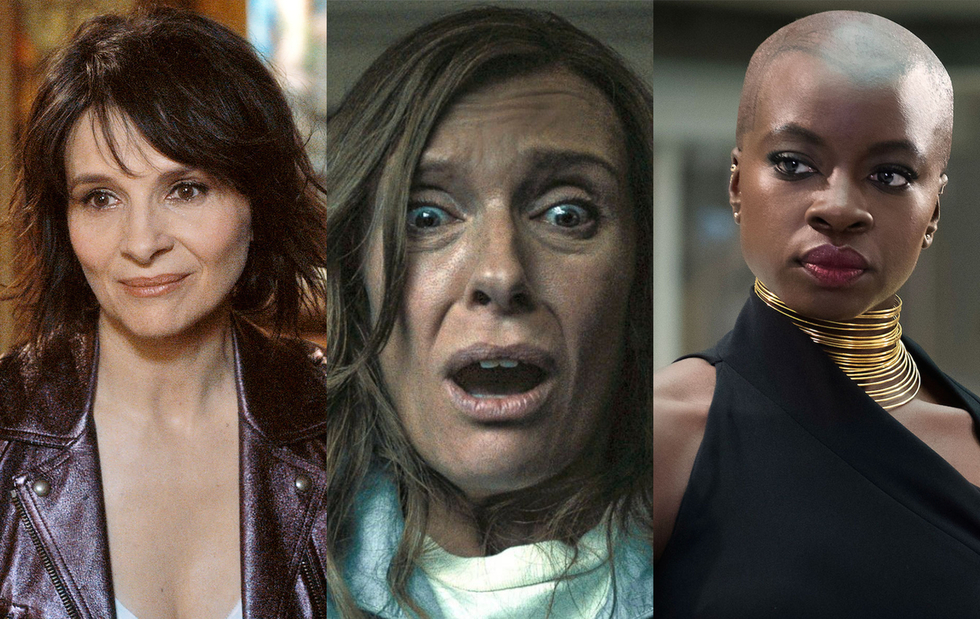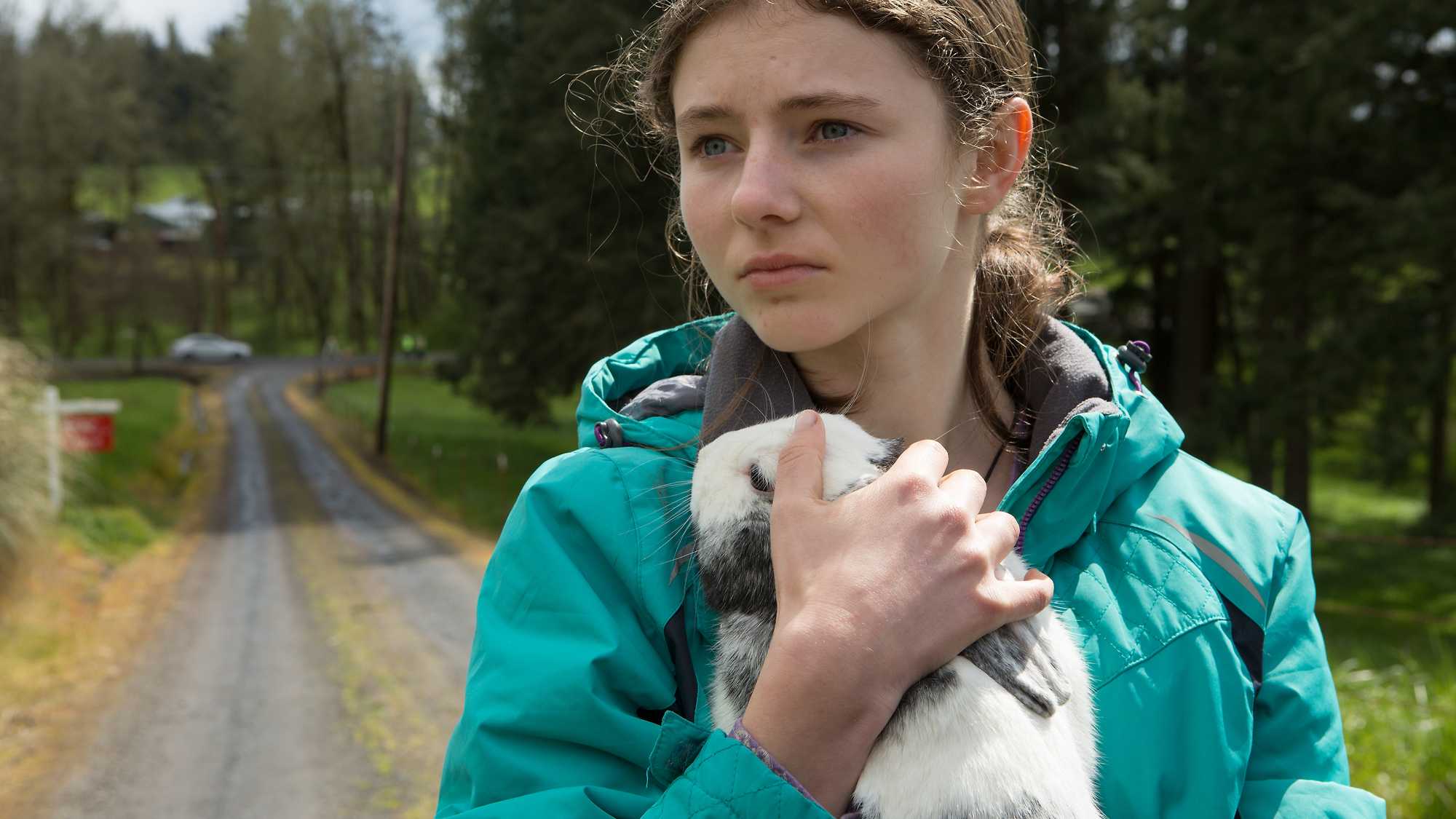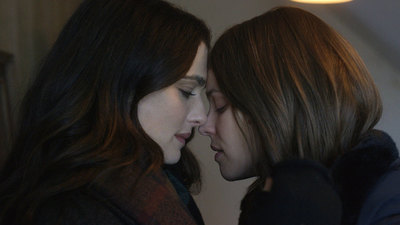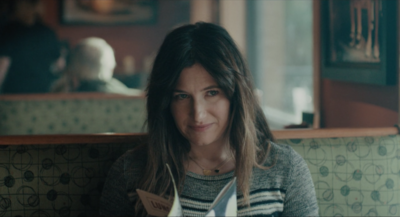
BY MATTHEW ENG |
The 11 Best Female Film Performances of Early 2018
These screen performances may have debuted during the first half of 2018 but their achievements deserve to be discussed and remembered all year round.

This year is already abundant in acting jewels from female performers of varying ages, backgrounds, and experiences, from stunning newcomers like Mahour Jabbari and Thomasin Harcourt McKenzie capably carrying the hefty weight of their films to living legends like Juliette Binoche, Toni Collette, and Michelle Pfeiffer gamely showing us new sides of their boundless talent. Better yet, many of the most memorable female characters we’ve seen thus far derive from the likes of Diablo Cody, Claire Denis, Sadaf Foroughi, Debra Granik, Alia Shawkat, and other self-determined female storytellers whose behind-the-camera contributions are leveling the playing field of a medium still primarily molded by men. Here, then, are 11 of the best female performances from films released within the first six months of 2018:

Juliette Binoche, Let the Sunshine In
How does she do it? How does Juliette Binoche move so fluidly, with nary a bead of sweat, between the sorts of heightened emotional states that exhaust or paralyze a great many actors, even those of a similar stature? As Isabelle, a Parisian artist and divorcée who leaps heart-first into a series of disastrous relationships over the course of Claire Denis’ free-floating romantic drama, Binoche is put through the wringer in scene after scene, enticing suitors both eligible and incompetent before finally driving them away with the gale-force of her ungovernable feelings. Messy emotions are often conveniently used as an excuse for erratic and undisciplined acting, but Binoche manages to pin down each and every one of Isabelle’s highly-charged reactions with confident, quicksilver directness. The actress, who continues to radiate from within like a one-woman lighting device, may appear to surrender herself completely to her role in this film and her similarly vulnerable characters in recent career peaks like Flight of the Red Balloon, Certified Copy, and Clouds of Sils Maria with little evident concern for technique, but she is far too precise and purposeful an interpreter for such a statement to be correct. Instead, the actress has developed a singular way of being on screen, one that renders technique invisible and floods the frame with a passion made for the movies yet retrieved from the debris of everyday life, which Binoche majestically honors in all its ordinariness and immensity.

Toni Collette, Hereditary
Amid all the brutal deaths and Grand Guignol demonization of Ari Aster’s demented Hereditary stands Annie, a wife, mother, and artist who is, at her core, an ordinary woman struggling to process the grief that appears to have trailed her for nothing short of a lifetime. In his feature directorial debut, Aster has handed Toni Collette, one of the screen’s all-time greatest chameleons, her juiciest role since her multi-role master class on The United States of Tara, which came to a close a full eight years ago. Collette, in turn, has given Aster yet another of her formidable, electric performances, this time merging the manic and the mundane to create a daringly unreliable horror protagonist, who might be receding into her depression, or something far more diabolical, even in her moments of warts-and-all coherence. Hereditary and other contemporary horror movies of its ilk need actors of Collette’s caliber and courage, which is to say that Collette never locks herself into a single mood or register, an actorly habit increasingly common in a genre whose surprises are so often preordained. By leaving herself open to variation, the actress is able to find comedy in the film’s tensest dialogues and locate true-to-life pathos in between the lines of a screenplay prone to spelling out so many of its twists and turns. In an early scene, Aster zooms in on Annie sharing more than she means to during a grief counseling session, keeping his cuts at a minimum in order to let Collette anchor and alter the scene at her will; together, director and actress put us inside the mind of a character learning to understand the complexity of her emotional turmoil. Annie may never fully regain the clarity of that scene, but Collette remains heroically resolute in her approach, deepening Aster’s scares with a fathomless desolation that is impossible to shake away, much less forget.

Danai Gurira, Black Panther
Ryan Coogler’s game-raising blockbuster may bear the name of its central male superhero but the film itself is bolstered in scene after scene by the exhilarating talents of its lead actresses, from the prodigious charisma of Lupita Nyong’o to the wily, scene-stealing one-liners of Letitia Wright to the Shakespearean grief of the great Angela Bassett. Yet it’s Danai Gurira as the army-leading, Wakanda-defending, wig-throwing Okoye who makes the most indelible impression of all from within this female ensemble. It isn’t only that the actress brawls her way through key combat scenes with such graceful athleticism, though the sight of Gurira kicking a baddie off a casino landing before descending downward with gravity-warping ease to finish off his accomplices is one of the more thrilling spectacles ever produced by the Marvel machine. But rather than rest on the force of her action showcases, Gurira ups the ante in all of her moments, no matter how tiny, with a mix of humor (“You froze”), outrage, and righteous conviction that derives organically from the character and commands our attention entirely. Gurira is also a true supporting player, uncloaking new facets of her co-stars’ performances with the sheer strength of her own strong-jawed, straight-shouldered intensity; look at the shock of previously untapped anger that passes through Nyong’o’s Nokia in the face of Okoye’s unflinching patriotism during a mid-movie argument. Gurira’s ass-kicking capabilities are redoubtable but it’s the heft of her belief in country over anything, even love, that rewrites this figure from a two-dimensional killing machine into a fully-realized Wonder Woman, dexterous in both body and mind.


Mahour Jabbari and Bahar Noohian, Ava
This past year, Saoirse Ronan and Laurie Metcalf acquired amply deserved prizes and heaps of praise for vivifying the combative, loving, and thus universal mother-daughter attachment at the heart of Lady Bird. Fans of Greta Gerwig’s splendid and widely celebrated coming-of-age gem would be well advised to watch Ava, the vastly lesser-known feature narrative debut of Sadaf Foroughi. The Iranian-Canadian writer-director has crafted an uncompromising portrait of a defiant and proudly imperfect young schoolgirl in Tehran who refuses to bend to the will of her well-meaning but divided parents, her school’s ironclad administrators, or her increasingly disassociated girlfriends. The combustible relationship between Ava (played by the fantastic, first-time screen actor Mahour Jabbari) and her exasperated mother (the daringly unaffectionate Bahar Noohian) isn’t as central to Foroughi’s film as the maternal relationship in Lady Bird, but it’s also a more audacious creation, free of the reassuring comedy and lightness of tone that made Ronan and Metcalf’s arguments comparably easier to stomach. Jabbari and Noohian dedicate themselves to exploring every unflattering nook and cranny of this bitter bond, carefully but no less bravely stepping out onto a high ledge of dramatized turmoil, hand-in-hand with Foroughi. These fearless and ferociously affecting performers aren’t just resorting to hysterics but skillfully building an arc for their characters that magnifies from daily passive-aggressions to the truculent and finally violent episodes of the film’s later passages. Jabbari, who conjures an acute specificity with each of the figures in Ava’s life, and Noohian, whose brokenhearted undertow frequently complicates our reactions to this regret-laden materfamilias, come closer than any screen performers in recent memory to mirroring the impudent, intramural conflicts of John Cassavetes’ masterpieces… which should be reason alone to seek out this movie and these jaw-dropping actresses.

Rachel McAdams, Disobedience
I haven’t tried this experiment and wouldn’t necessarily recommend it, but I suspect that if I were to watch Sebastián Lelio’s Disobedience on mute, I would still be able to discern every single shade and sentiment in Rachel McAdams’ revelatory performance as Esti, an ultra-Orthodox wife and English teacher who gradually begins to question her faith upon the reappearance of Ronit (Rachel Weisz), an estranged and self-exiled love from her long-ago youth. After years of uncomfortably navigating the Hollywood ingenue game in everything from syrupy romances to a Woody Allen comedy, McAdams has at long last fully come into her own as an actor. Disobedience represents a career peak for this unassumingly versatile performer, who has never appeared more assured and at ease in her own skin than she does playing what is surely one of the more foreign roles in her filmography. McAdams, a deft modulator resistant to painting her characters in broad strokes, internalizes the fraught journey laid out for Esti and then sets forth telegraphing each shift in the character's psychology across her doll-like facade. There's a fine-tuned exactness to her method that only escalates in urgency and pathos as Esti transforms from a devout believer feigning at beatific contentment to a wavering skeptic, whose acts of sexual and spiritual rebellion possess a gravity made possible, first and foremost, by the wholehearted commitment of her interpreter. McAdams vividly embodies what is already predominant in Esti on the page; that is to say, the sorrowful disillusionment of a woman living against her grain within the confines of a world immune to change. But the actress, who casts a lambent light even in the gloomiest of settings, also suggests a dual quality of equal profundity: the hope that there is an existence just outside the walls of Esti's religion that will allow her to love and evolve without guilt or repression.

Thomasin Harcourt McKenzie, Leave No Trace
Eight years after putting an untested but magnetic newcomer named Jennifer Lawrence at the forefront of her Appalachian neo-noir Winter’s Bone, writer-director Debra Granik has again built one of her movies around a young female performer of natural gifts. Seventeen-year-old Kiwi actress Thomasin Harcourt McKenzie is the hushed, self-effacing center of Leave No Trace, a delicate heartbreaker of a drama about a pair of father-daughter survivalists who refuse to adhere to society’s rules and conventions while carving out a home for themselves in a Portland national park. McKenzie’s Tom is a dutiful daughter with a solid moral compass but a creeping suspicion that her father’s emphatic vision of how their life should be lived has made her into a timid disciple, unsure of her own convictions and identity. Playing opposite the astounding Ben Foster as her war veteran dad, McKenzie is perfectly in-sync with her more experienced co-star while fleshing out an individual metamorphosis that relies on revelations which are often implicit, leaving it up to the actress to make Tom's contemplation readable and riveting. McKenzie’s exterior may be one of limpid, doe-eyed innocence, but her acting style is lean and nuanced in its meticulousness; no flicker of thought, however muted, goes unnoticed by the naked eye. Frequently shot in isolation, McKenzie withholds and reveals Tom’s inner self with heartfelt purpose and, in so doing, suggests a whole universe of unvoiced secrets and judgments that stems from years of playing her father’s one and only keeper. A less disciplined actress and a more figuratively-minded director might have tried to symbolize the character or else exceptionalize her passage, but Harcourt and Granik ensure that Tom be all she needs to be: a girl, normal despite a life devoid of normalcy, who is finally summoning the courage to give voice to what she wants.

Michelle Pfeiffer, Where Is Kyra?
Before Andrew Dosunmu’s Where Is Kyra? quietly bowed this spring after an even quieter debut at Sundance in 2017, you would have had to travel back nearly a decade, to Stephen Frears’ 2009 adaptation of Colette’s Chéri, to see the magnificent Michelle Pfeiffer as the undeniable center of a film. For those who worship at the altar of this choosy yet transcendent actress, Dosunmu’s third narrative feature, a searing, stylistically daring character portrait of a middle-aged Brooklyn woman driven to desperate measures to stay financially afloat after her mother's death, is tantamount to nothing short of event cinema. Pfeiffer has rarely been afforded an acting assignment as challenging and idiosyncratic as the one mapped out by her writer-director, who, working in tandem with the genius cinematographer Bradford Young, keeps Pfeiffer at bay from us in some of her most vulnerable moments, making the shots in which her older but forever extraordinary face finally confronts the camera all the more vital. The result is an understated, slow-burning tour de force that boldly rebukes easy transparency and the crutch of an audience’s pity for the sake of tougher and more fiercely unsentimental character-building, rooted in the raw reality of Kyra’s psychological and socioeconomic decline. Pfeiffer employs her body with the virtuosic control that musicians possess over their instrument-of-choice so that we only see what the actress wants or allows us to see. To watch Kyra clench her countenance with the tightness of a fist at each of life's setbacks or let it soften at the sight of romance and other flashes of hope is to watch Pfeiffer build her performance with the authorial decision-making of an authentic and unfading star, one whose masterful powers have not dwindled in the slightest.

Alia Shawkat, Duck Butter
It can be hard work for a performer to play an emotionally inhibited character without closing herself off to an audience’s empathy or identification. Miguel Arteta’s Duck Butter is a reflective, lo-fi relationship drama about two L.A. strangers (Alia Shawkat and Victoria’s deeply charismatic Laia Costa) who attempt a hasty experiment of accelerated romance: spending 24 hours in each other’s company with no sleep but plenty of sex, quickly exposing one another to the individual quirks, bitternesses, and insecurities that ruin couples who are years into their union. As Naima, a floundering actress terrified by the idea of opening herself up in both her work and personal lives, Shawkat, who also co-wrote and produced the film, fuses a spiritual connection with the viewer early on, cluing us in to the changes in her character though canny modifications in her performance. The actress differentiates the self-alienating moments in which the character privately reacts to increasingly heated situations from the instances where Naima only seems to be candid in the company of others, even though few are fooled by the cloud of jokey sarcasm she hides behind. Shawkat, with her captivatingly subtle face that expresses and emotes on an always-realistic register, mines her own script, in ways verbal and visible, for deeper truths about the fear of vulnerability that hinders her character’s career and keeps prospective partners at bay. Naima may not yet be a mature enough actor to confront her hang-ups head-on, but her interpreter and creator is an artist who understands and embraces the unique risks that must be taken to further one’s craft. Shawkat’s approach makes frequently mutating feelings tangible and empowers her creation to be the rare work about intimacy that evokes the genuine rush of intimacy, in all its dizzy, giddy disorientation. The courage of Shawkat's candor is the very soul of this movie.


Charlize Theron and Mackenzie Davis, Tully
Like all truly great movie stars, Charlize Theron makes and unmakes her constantly shifting screen persona with an adroitness that betrays considerable craft and zero hesitancy or self-adulation; she simply changes and sometimes even erases herself based on the particular needs of a given role. It is utterly impossible to draw a throughline that might connect Monster’s Aileen Wuornos to Young Adult’s Mavis Gary to Mad Max: Fury Road’s Imperator Furiosa to Atomic Blonde’s Lorraine Broughton to Tully’s Marlo, the latter of which marks the latest addition to a filmography that feels, with each new role, like a career-long rebuke to Hollywood’s silly inclination to clip the wings of actresses like Theron, pinning them down into a single playable archetype. In Jason Reitman and Diablo Cody’s jagged meditation on contemporary child-rearing and its discontents, Theron wears the role of a fatigued mother of three with a full-bodied, second-skin familiarity, exuding a bone-tired despair through her every minute gesture, from the deadpan blinking of her heavy-lidded eyes to the trudging forward movement that comes to define Marlo’s daily routine of tending to everyone’s needs but her own. When the perfectly cast Mackenzie Davis enters the narrative as the titular night nurse hired to unburden Marlo’s heavy load, Theron’s approach sparks with the renewal of a long-dormant lust for life, a development achieved, in no small part, by the tremendously contagious charm of her main scene partner. Tasked with reflecting and refracting Theron's yearning, self-deprecating protagonist, Davis manages to capture the unfettered, loose-limbed charisma that made her co-star such an alluring presence in the early days of her career, while also imbuing Tully with a sweetly green sincerity that enables the character to stand alone as her own separate entity. Together, Theron and Davis forge a spoken and physical openness that accrues so many different extratextual layers throughout the duration of Tully. These two actresses work harder than anyone involved in their film to keep it brimming with genuine surprises and unspoken implications, inspiring belly-laughs and heart-pangs in equal measure.

